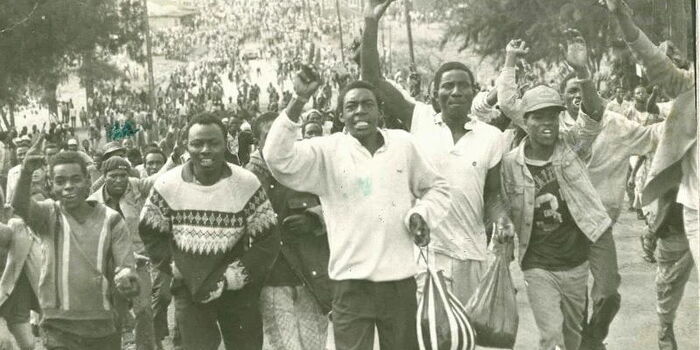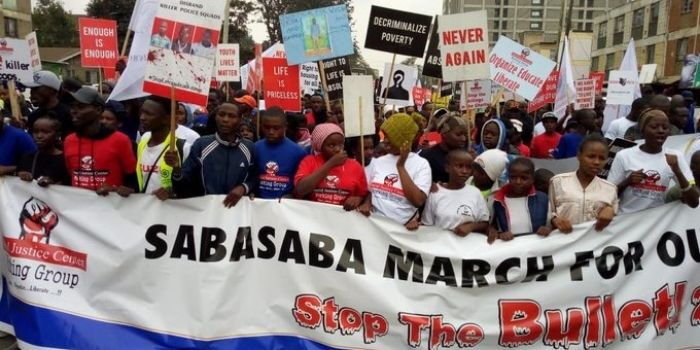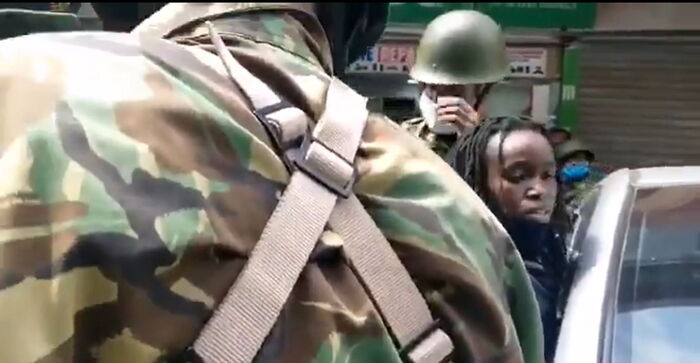Every year on July 7, Kenyans pause to remember a pivotal moment that changed the country’s political course, Saba Saba.
More than a date, it is a movement born in resistance and nurtured in sacrifice. Its roots go back to 1990, when a handful of daring leaders challenged the autocratic grip of President Daniel Arap Moi’s KANU regime. The echoes of that resistance continue to shape Kenya’s political consciousness to this day.
It was on July 7, 1990, that opposition leaders Kenneth Matiba, Charles Rubia, and Jaramogi Oginga Odinga called for a rally at Kamukunji Grounds in Nairobi, demanding the return of multiparty democracy.
The government banned the rally, but thousands defied the order. What followed was chaos, marked by violent crackdowns, arrests, and bloodshed. Matiba and Rubia were swiftly detained. Odinga, a political elder and symbol of resistance, stood firm with the people, reinforcing the call for democracy.
In the same breath of rebellion, a young James Orengo spoke boldly in forums, only to face arrest himself. Raila Odinga, fresh from previous detentions between 1982 and 1988, reaffirmed his commitment to the pro-democracy wave.
Koigi wa Wamwere, undeterred by fear, spoke out in defense of civil rights and joined the long list of detainees. Wangari Maathai, unwavering and brave, condemned the regime’s brutality and mobilized women’s groups to resist state violence.
Saba Saba’s power didn’t end in the 1990s. It evolved and re-emerged each time injustice reared its head. In 1997, Koigi wa Wamwere returned to the streets to denounce electoral fraud.
Raila Odinga, ever the political force, maintained his advocacy through 1997, 2001, 2005, and as recently as 2023, continuing to challenge authoritarian tendencies, campaign for free and fair elections, oppose flawed constitutional referendums, and lead mass rallies against economic injustice.
Wangari Maathai, in 2003, shifted the protest lens to environmental justice, leading a bold march for land restitution. Paul Muite emerged around the same time, championing a people-led constitutional process and resisting top-down political manipulation during the 2005 referendum.
As Kenya transitioned into a new era, a fresh generation of activists carried forward Saba Saba’s flame. In 2008, Maina Kiai led a candlelight vigil to honor post-election violence victims. The 2010 Constitution, hailed by Ndung’u Wainaina and Gladwell Otieno, was celebrated as a victory born from the very seeds planted in 1990.
By 2013 and 2014, Boniface Mwangi had become the defiant voice of Kenyan youth. He marched against corruption, land grabbing, and extrajudicial killings.
Human rights lawyer Harun Ndubi followed suit in 2016, taking to the streets and being arrested while protesting police brutality.
In 2020, Boniface Akumu rallied youth in Mathare and Kayole, standing up against systemic oppression during the COVID-19 lockdowns.
Gacheke Gachihi condemned the silent war on youth in informal settlements, while Jerotich Seii led a powerful Saba Saba walk in 2021, her rallying cry simple yet profound: “We are tired.”
And still, in 2024, Saba Saba lived on, not through fire and tear gas, but through music and remembrance.
A national concert honored the fallen, the fighters, and those still marching for change. From Matiba to Mwangi, from Kamukunji to Mathare, the legacy of Saba Saba continues to shape Kenya’s political identity.
Saba Saba was never just a protest. It was a revolution in spirit, an uprising of ordinary people against extraordinary repression. That spirit endures, because the fight for justice, dignity, and democracy in Kenya is far from over.






